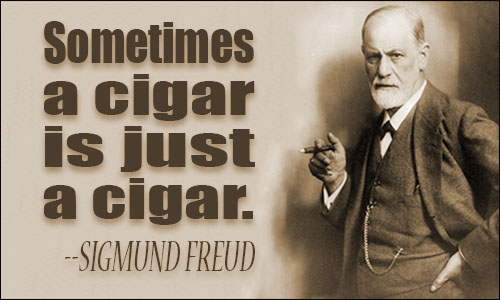
Sigmund Freud was an Austrian neurologist, now known as the father of psychoanalysis. Sigmund Freud Austrian Psychologist born on May 06, 1856, died on September 23, 1939. Sigmund Freud Quotes On Psychology.


He believed that the world is governed by thought and material existence is the expression of an immaterial spiritual essence. Hegel was an idealist philosopher who used this term to refer to the process of emergence of new ideas through the confrontation of opposing ideas. The father of psychoanalysis has influenced many psychologists and, despite being criticized by others, his ideas about psychotherapy or personality are still studied in the career of psychology.Another important concept used by Marx was the dialectic which was originally developed by the 18th century German philosopher Hegel. This confrontation, according to Marx, will finally result in replacing the system by socialism.51+ Sigmund Freud Quotes And Sayings For Inspiration Sigmund Freud is one of the most notable figures in the history of psychology. In a capitalist system the proletariat is always in conflict with the capitalist class.
Marx argued that all mental( ideological) systems are products of real social and economic existence. So Marx’s dialectic is known as dialectical materialism. According to him Hegel put the world upside down by giving primacy to ideas whereas Marx’s attempt was to reverse it.
Dialectical materialism was an effective tool in the hands of Marxists, in revealing the secrets behind the social processes and their future course of development.Explore Deanna Radiants board 'Sigmund Freud Quotes', followed by 242 people on Pinterest. All things contain within themselves internal dialectical contradictions, which are the primary cause of motion, change and development in the world. It considers the universe as an integral whole in which things are interdependent, rather than a mixture of things isolated from each other. Marxist dialectic can be understood as the science of the general and abstract laws of development of nature, society and thoughts.
Broadly speaking it refers to the idea that culture is governed by historical conditions and the relations of dominance and subordination prevalent in a particular society. The foundation or the base stands for the socio-economic relations and the mode of production and the superstructure stands for art, law, politics, religion and, above all, ideology. It is essentially a symbolic concept which employed the structure of a building to explain this relationship.
But in the final analysis his stories reveal the filtering of the bourgeois modernity in Kerala society and how it enters into a conflictual relationship with the values of feudalism. Vasudevan Nair, a noted Malayalam novelist wrote about the breaking up of the feudal tharavads in Kerala. It is true that they can be traced back to the class conflict prevalent in the Indian society M.T. In Marx’s own words, they are “phantoms formed in the brains of men.” From this point of view all cultural products are directly related to the economic base in a given society.Take the case of the novels of Mulk Raj Anand which address the life of the untouchables, coolies and ordinary workers struggling for their rights and self esteem.
They are Partinost or commitment to the working class cause of the party, Narodnost of popularity and Klassovost or writer’s commitment to the class interests. Raymond Williams identifies three principles as the founding principles of Socialist realism. It was mainly informed by the 19th century aesthetics and revolutionary politics. Socialist RealismSocialist Realism took shape as the official aesthetic principle of the new communist society.
Psychology Quotes Freud Manual In The
Earlier under feudalism the workers engaged in cottage industries produced various items on their own, all activities related to the production happening at the same place under the supervision of the same people. Marx, in Paris Manuscripts, refers to the alienation that originates out of the separation of the mental and manual in the capitalist society. Narodnost refers to the popular simplicity of the work of art.
It is not related to the explicit allegiance of a writer to a particular class but the writer’s inherent ability to portray the social transformation.Thus with the declaration of official literary policy by Soviet Union the “Moscow Line” was popularized and got international acceptance among communists. Klassovost refers to the commitment of the writer to the interests of the working class. The concept Narodnost reiterates this quality of popular art which is accessible to the masses and wanted to restore their lost wholeness of being. So, only folk art survived as people’s art.
Lukacs considered the 19th century realist fiction as a model and believed that a realist work must reveal the underlying pattern of contradictions in a social order. The Hungarian Marxist critic Georg Lukacs represented this type of political orthodoxy. According to him, “each element of a society’s superstructure, art, law, politics, and religion has its own tempo of development, its own internal evolution, which is not reducible to a mere expression of the class struggle or the state of the economy.” Yet classical Marxists claim that in the last analysis the superstructure is determined by that mode of production. However establishing a one to one relationship between base and superstructure as some “vulgar Marxists” may attempt, is opposed by the Marxist critic, Terry Eagleton. One of the examples of this rigid Marxist literary criticism is Illusion and Reality by Christopher Caudwell.
The prominent members of this group were Victor Shklovsky, Boris Tomashevsky and Boris Eichenbaum, who published their ideas originally in Russian Formalist Criticism: Four Essays, edited by Lee T. It was disbanded by the Communist party as it did not conform to the official theoretical perspective of the party. Russian Formalism emerged as a new perspective informed by Marxism in the 1920s. Further developments in Marxist AestheticsMarxist criticism flourished outside the official line in various European countries. The debate was handed over to the Formalists who developed new directions in the development of Marxist criticism.
It was an argument against the hegemony of absolute authorial control. His concept of Dialogism affirmed plurality and variety. One of the members of this group, Mikhail Bakhtin remained in Soviet Union and continued his critical practice.

The Frankfurt School also generated one of the first models of a critical cultural studies that analyzes the processes of cultural production and political economy, the politics of cultural texts, and audience reception and use of cultural artifacts. They produced for the first time studies on mass culture and communication and their role in social reproduction and domination. They tried to combine aspects of Formalism with the theories of Marx and Freud. Walter Benjamin, Theodor Adorno and Herbert Marcuse were some of the important figures attached with this school.


 0 kommentar(er)
0 kommentar(er)
